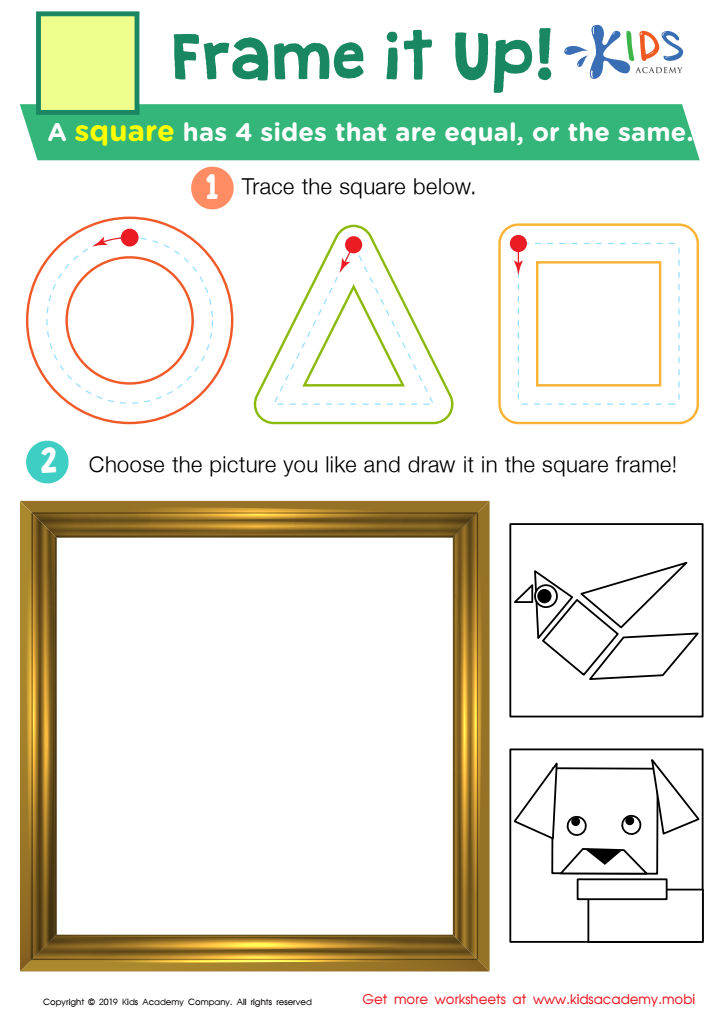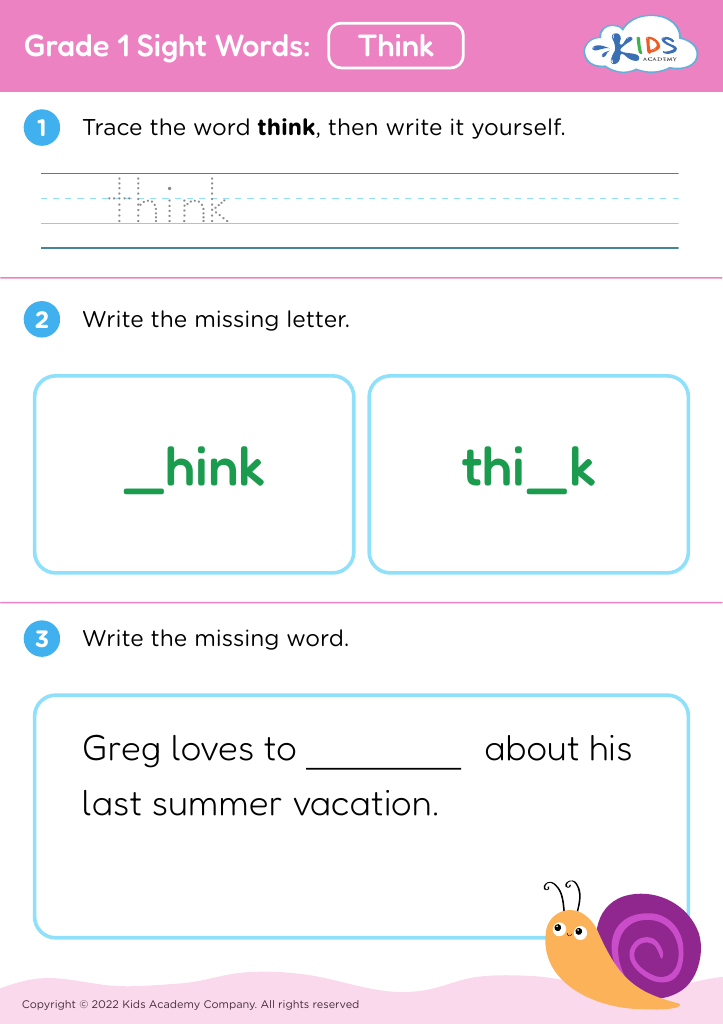Basic Addition Reading Worksheets for 6-Year-Olds
3 filtered results
-
From - To
Discover our engaging Basic Addition Reading Worksheets designed specifically for 6-year-olds! These worksheets are perfect for young learners to enhance their addition skills while improving reading comprehension. Each activity combines simple addition problems with fun, age-appropriate reading tasks, making math enjoyable and interactive. Our resources are tailored to support early math readiness, helping children develop critical thinking and problem-solving abilities. Whether you've got a budding mathematician at home or in the classroom, these worksheets are an excellent way to reinforce foundational math skills. Download and watch your child's confidence grow as they master basic addition!


Baa Baa Black Sheep Printable


Frame it Up Worksheet
Basic addition reading is a fundamental skill for 6-year-olds that lays the groundwork for their future academic success. Understanding addition concepts not only enhances a child's mathematical abilities but also strengthens their overall cognitive development. At this age, children are mastering essential skill sets, and integrating reading with addition enables them to comprehend numerical concepts more joyfully and engagingly.
When parents or teachers prioritize addition reading, they provide children with the tools needed to solve problems and think critically. Engaging stories or activities that incorporate basic addition make learning fun and relatable, increasing a child's motivation and interest in math. Furthermore, knowing how to read and understand addition problems helps young learners build essential communication skills about math concepts, fostering a deeper understanding.
Additionally, foundational math skills acquired in early education correlate with later academic achievement. By nurturing these abilities early on, parents and teachers can boost a child’s confidence, reduce math anxiety, and ensure they are better prepared for more advanced subjects. In summary, advocating for basic addition reading enhances a child's learning experience and supports their journey toward becoming successful, capable learners.
 Assign to My Students
Assign to My Students






















